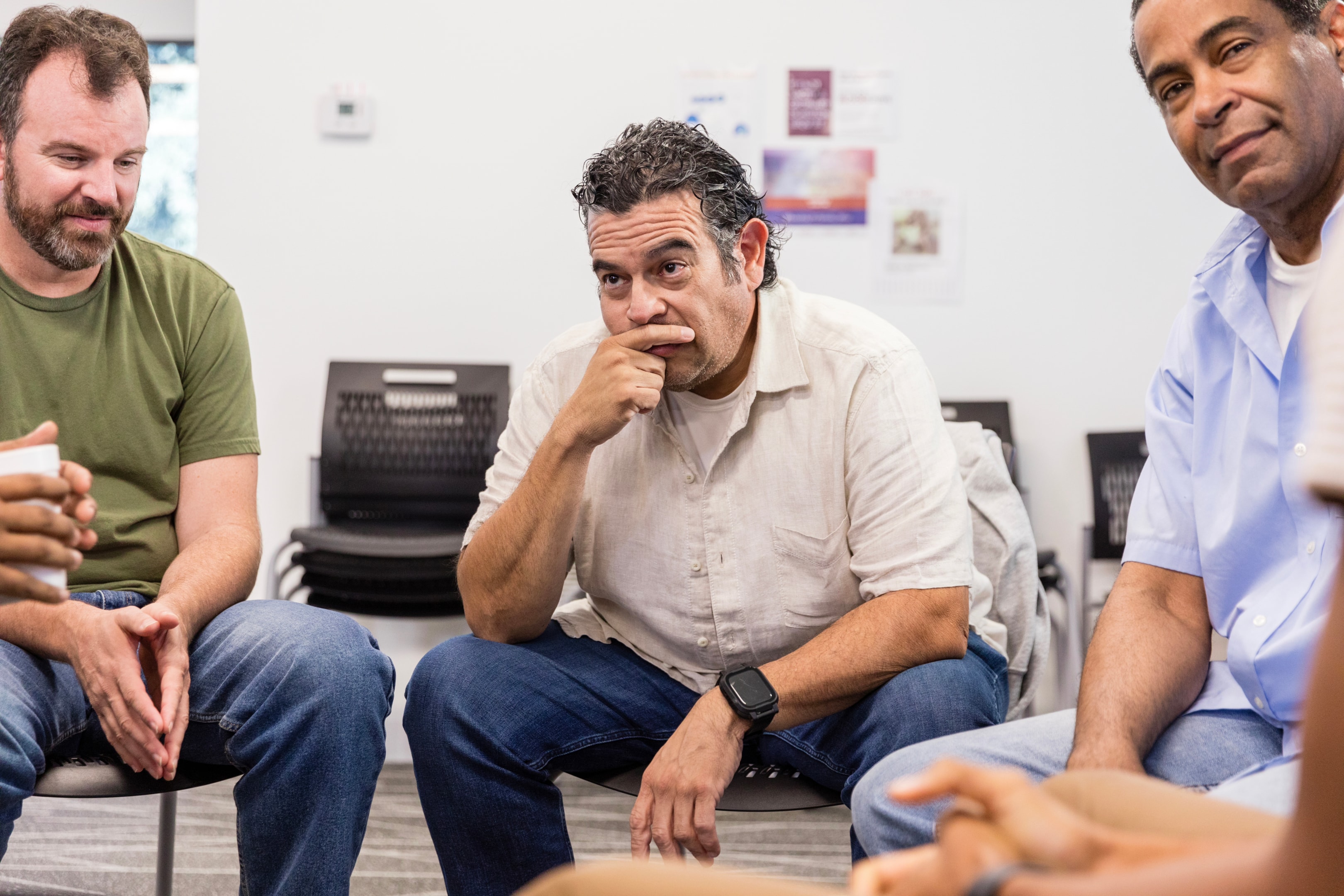16 Characteristics That Define the Best Rehab Centers in the US
16 Characteristics That Define the Best Rehab Centers in the US
Finding the right addiction treatment centers is one of the most critical decisions for someone embarking on the path to recovery. Not all rehab centers are created equal; the top-tier facilities distinguish themselves through exceptional care, comprehensive treatment plans, and specialized approaches that cater to each individual’s unique needs. These premier centers offer a holistic environment that fosters healing, support, and long-term success, making them vital for effective recovery.
Specific rehab centers stand out from the rest due to their high standards of care, whether through accredited programs, experienced staff, or innovative therapies. This post will explore 12 key characteristics that separate the best drug rehab centers in the USA from the rest, helping you identify the qualities that ensure a successful and sustainable recovery.
1. Rehab Center Accreditation and Licensing
Accreditation and state licensing are crucial indicators of a treatment center’s quality and commitment to effective treatment. Proper accreditation from organizations such as the Commission on Accreditation of Rehabilitation Facilities (CARF) or The Joint Commission demonstrates that a treatment center meets rigorous standards of care and safety. These accrediting bodies evaluate addiction treatment providers based on their adherence to best practices, including patient care protocols, staff qualifications, and overall operational integrity.
State licensing is another critical component, ensuring the treatment center complies with state-specific regulations and legal requirements. Licensed facilities are regularly inspected and must adhere to health and safety standards, guaranteeing that they provide ethical and reliable treatment. Accreditation and licensing signal that a treatment center operates within legal and professional guidelines and instills confidence in patients and their families, providing peace of mind that they are receiving care from a facility that has been thoroughly vetted and meets national and state standards for addiction treatment.
2. Experienced and Qualified Medical Staff
A top-quality drug rehab center relies on a multidisciplinary team of professionals, including doctors, licensed therapists, and certified addiction specialists, all essential for comprehensive care. These professionals should possess the proper credentials and substantial experience in addiction treatment and mental health treatment. When a rehab center has a skilled team with expertise across various therapeutic disciplines, patients benefit from an integrated approach that addresses their physical and mental health needs.
Experienced staff contribute significantly to better patient outcomes by applying evidence-based practices and personalizing treatment plans based on each individual’s unique condition. For example, a psychiatrist with expertise in addiction and co-occurring mental health disorders can adjust medications to manage withdrawal symptoms and mood disorders, while therapists with addiction specialties offer counseling and coping strategies tailored to the patient’s needs. This level of expertise and coordinated care ensures that patients receive the right interventions at the right time, increasing their chances of long-term recovery and reducing the risk of relapse.
3. Comprehensive Treatment Plans
The best treatment centers understand that every patient’s journey to recovery is unique, which is why they commonly emphasize a personalized addiction treatment program tailored to meet each individual’s specific needs. Whether a patient requires dual diagnosis treatment for co-occurring mental health disorders, detoxification to manage withdrawal symptoms, or family therapy to repair relationships strained by addiction, these facilities go beyond the “one-size-fits-all” approach.
Comprehensive treatment plans are essential because they take into account the whole person—addressing not just the addiction but also any underlying issues that may be contributing to it. For example, a patient suffering from both depression and substance use disorder will benefit from a treatment program that integrates mental health care with addiction treatment, ensuring both conditions are treated simultaneously. Additionally, incorporating family therapy into the plan can help create a supportive home environment, which is vital for sustained recovery.
By focusing on individualized care, top rehab centers ensure that each patient receives the most effective combination of therapies, resulting in better outcomes and a higher likelihood of long-term success. This level of customization is a hallmark of the best treatment facilities, setting them apart from those that offer generic, one-size-fits-all rehab programs.
4. Variety of Therapies and Approaches
Top rehab centers stand out by offering a diverse range of therapeutic approaches that address each patient’s unique needs, including those struggling with drug and alcohol addiction. These facilities go beyond traditional therapies by incorporating evidence-based methods such as Cognitive Behavioral Therapy (CBT) and Dialectical Behavior Therapy (DBT) alongside holistic treatments like yoga, mindfulness meditation, acupuncture, and even equine therapy. This variety allows for a more well-rounded approach to recovery, recognizing that different patients respond better to different methods.
By offering multiple treatment modalities, rehab centers can cater to a wider range of patients, including those with dual diagnoses, trauma histories, or specific preferences for alternative therapies. For example, some individuals may benefit from the structured, cognitive focus of CBT, while others may find healing through creative and physical outlets such as art therapy or yoga. Holistic approaches, like equine therapy, also help patients develop emotional regulation and build trust, which are critical components of recovery.
This combination of therapies ensures that each patient receives a tailored approach that best suits their mental, emotional, and physical needs, leading to more effective treatment and long-term success.
5. Focus on Dual Diagnosis and Addiction Treatment
One of the defining features of top rehab centers is their ability to treat dual diagnosis patients—those who struggle with both drug addiction and co-occurring mental health disorders such as anxiety, depression, PTSD, or bipolar disorder. These conditions often feed into each other, creating a vicious cycle where untreated mental health issues exacerbate drug abuse, and vice versa. To ensure lasting recovery, it is essential to address both the addiction and the underlying mental health condition simultaneously.
The best drug rehab centers are equipped with specialized staff and resources to handle dual diagnosis cases. They employ licensed psychiatrists, therapists, and addiction specialists who work together to create integrated treatment plans that address both sides of the patient’s struggles. For instance, someone suffering from PTSD and substance use disorder may receive a combination of trauma-informed therapy and addiction counseling, ensuring that their treatment is comprehensive and addresses the root causes of their addiction.
By treating both addiction and mental health disorders concurrently, these facilities improve outcomes and reduce the likelihood of relapse. Patients learn to manage their mental health challenges while developing healthier coping mechanisms, leading to a more stable, sustainable recovery.
6. High Success Rates and Patient Testimonials
Success rates and patient testimonials play a crucial role in demonstrating the effectiveness of drug rehab centers. When a facility openly shares its success rates and features testimonials from past patients, it builds trust with potential clients by showcasing real-world results and the positive impact of their treatment programs. Transparent sharing of these outcomes reassures prospective patients and their families that the center has a proven track record of helping individuals achieve lasting recovery.
The best addiction treatment centers often highlight success rates based on clinical evaluations, post-treatment sobriety metrics, and long-term recovery statistics. In addition, they provide access to patient testimonials that offer firsthand accounts of the recovery journey, detailing the quality of care, the effectiveness of the therapies, and the support they received. These stories offer an inside look at what makes the center exceptional and help build confidence that the facility can meet the needs of new patients.
By consistently sharing positive outcomes and real experiences, top rehab centers establish credibility and set themselves apart as leaders in addiction treatment. This transparency not only demonstrates their commitment to high-quality care but also helps families make informed decisions about the best drug rehab centers for their loved ones.
7. Comprehensive Aftercare and Substance Abuse Treatment Relapse Prevention Programs
Long-term recovery from addiction doesn’t end when a patient completes a substance abuse treatment program. In fact, the post-treatment phase is one of the most critical parts of the journey. Comprehensive aftercare and relapse prevention programs are essential components of sustained sobriety, helping individuals transition smoothly back into their daily lives while minimizing the risk of relapse. The best addiction treatment providers understand this and extend their care far beyond the initial treatment phase.
Aftercare programs typically include regular therapy sessions, support group meetings, and sober living arrangements, all designed to provide ongoing support as patients adjust to life without substances. Sober living homes offer a safe, structured environment where individuals can live while maintaining their sobriety. These homes often serve as a bridge between inpatient treatment and full reintegration into society, reducing exposure to triggers that could lead to relapse.
Additionally, the best addiction treatment centers offer relapse prevention programs that equip patients with practical tools to recognize and manage triggers, build healthy coping mechanisms, and maintain a strong support network. These programs often include relapse prevention education, ongoing counseling, and check-ins with recovery coaches or mentors.
By offering robust aftercare and relapse prevention support, top-tier rehab centers ensure that patients have the resources they need to stay on track and achieve lasting recovery. This extended care demonstrates their commitment to each individual’s long-term success, not just short-term treatment outcomes.
8. Holistic and Alternative Treatments
Top rehab facilities distinguish themselves by incorporating holistic and alternative therapies into their rehab program, enhancing the overall recovery experience. These therapies, which include acupuncture, meditation, yoga, and nutritional counseling, complement traditional treatments like cognitive-behavioral therapy (CBT) and medication-assisted treatment (MAT). By addressing the mind, body, and spirit, holistic approaches promote not only sobriety but also overall well-being.
For example, acupuncture can help manage stress, reduce withdrawal symptoms, and rebalance the body’s energy, while meditation and mindfulness practices improve emotional regulation and reduce cravings by teaching patients how to be present and mindful of their thoughts. Yoga supports physical health and mental clarity, aiding in emotional resilience and physical recovery, while nutritional counseling ensures that patients restore and maintain proper nutrition, which is vital for healing from the damage caused by addiction.
These therapies work in harmony with traditional methods by addressing deeper emotional, spiritual, and physical needs, fostering a more holistic recovery. They empower individuals to take a more active role in their healing journey, ensuring that their treatment isn’t just about sobriety but about achieving a balanced and fulfilling life post-recovery.
9. Family Involvement and Support
Family involvement plays a crucial role in the recovery process, as drug or alcohol addiction often affects not just the individual but their entire support system. Family therapy is a key component offered by top rehab centers, aiming to address and heal the emotional, psychological, and relational damage caused by substance abuse. By involving family members in the treatment process, these centers help rebuild trust, improve communication, and foster a healthier dynamic within the family.
Top-tier rehab centers encourage family participation through counseling sessions, workshops, and educational programs. These programs help family members understand the nature of addiction, recognize their role in their loved one’s recovery, and learn how to support them effectively. This involvement also provides families with the tools they need to create a supportive home environment, which is essential for sustaining long-term recovery.
By integrating families into the recovery process, rehab centers not only strengthen the individual’s support network but also help address any underlying family issues that may have contributed to the addiction. This holistic approach ensures that both the individual and their loved ones are on the path to healing together, fostering stronger relationships and better outcomes.
10. Customized, Comfortable Rehab Facilities
The best rehab treatment center understands that recovery is not only about therapy but also about providing a comfortable and nurturing environment where patients can focus entirely on healing. These facilities often offer luxurious living arrangements that go beyond basic needs, featuring private rooms, chef-prepared meals, and recreational activities designed to support overall well-being and relaxation.
In contrast to standard rehab centers, which may offer shared rooms and institutional-like settings, luxury rehab centers create a more personalized, serene environment. Private accommodations provide patients with the space and privacy they need to reflect and recover. High-quality meals, often crafted by professional chefs, ensure that patients receive the nutritional support required for their physical and mental health.
Additionally, luxury rehab centers may offer recreational activities such as swimming, hiking, art therapy, yoga, and fitness programs, all of which contribute to a more well-rounded and enjoyable recovery experience. These activities not only help to reduce stress but also help patients build new, healthy habits that they can carry forward into their post-rehab lives.
This attention to comfort and personalization allows individuals to focus fully on their recovery without the added stressors of an uncomfortable or restrictive environment. For many, the added privacy, comfort, and access to recreational therapy at these top-tier facilities make a significant difference in their ability to engage deeply in their treatment and achieve lasting success.
11. Strong Ethical Practices and Reputation
In the addiction treatment industry, ethical practices and transparency are key differentiators that set top rehab centers apart from lesser-known or potentially untrustworthy facilities. These leading centers operate with a high level of integrity, adhering to legal standards and regulatory requirements to ensure that patients receive safe, effective care. By being transparent about their treatment methods, success rates, and facility operations, they build trust with prospective clients and their families.
Ethical advertising is another critical aspect. The best rehab centers avoid deceptive or exaggerated claims about treatment outcomes and success rates. Instead, they provide honest, clear information about what patients can expect, ensuring that their marketing practices are aligned with the actual services provided. This ethical approach not only fosters trust but also protects patients from falling prey to misleading promises that could jeopardize their recovery.
Maintaining a strong reputation in the addiction treatment field is essential. This is achieved through positive patient experiences, high success rates, and consistent adherence to ethical guidelines. Reputable centers build relationships with patients, families, and the wider community by demonstrating their commitment to long-term recovery and providing quality care. Over time, this reputation becomes a cornerstone of their success, attracting more individuals seeking a trustworthy path to recovery.
12. Strong Alumni Networks and Community Involvement
The best treatment centers recognize that recovery doesn’t end when a patient leaves the facility. To support long-term sobriety, these centers foster a sense of community through strong alumni programs that keep former clients connected and engaged. Alumni networks offer opportunities for ongoing support, accountability, and a shared commitment to sobriety. Through regular meetups, support groups, and mentorship opportunities, these programs help individuals maintain the progress they achieved during treatment.
Involvement in alumni networks allows former clients to build relationships with others who understand the challenges of addiction and recovery. These networks often host events, group therapy sessions, and volunteer opportunities, all of which encourage ongoing personal growth and foster a supportive community that clients can rely on post-treatment.
Community involvement is another critical factor in maintaining sobriety. Engaging in outreach programs, service projects, or advocacy efforts can provide former patients with a sense of purpose and belonging, which are essential for preventing relapse. Being active in a recovery-focused community helps individuals stay grounded in their sobriety while contributing positively to others who are just beginning their journey.
By offering strong alumni networks and opportunities for community engagement, top treatment centers ensure that their clients are not left to navigate recovery alone. This ongoing connection provides the encouragement and support necessary to maintain sobriety and continue living a fulfilling, substance-free life.
13. Insurance and Cost Considerations
Understanding the financial aspects of addiction treatment is crucial. The rehab cost can vary significantly based on the facility, location, and level of care provided. Some of the best addiction treatment providers in the USA offer various payment options to make treatment more accessible.
14. Location and Accessibility
The location and accessibility of treatment centers can significantly impact the recovery process. Choosing a conveniently located facility with the right amenities can enhance the overall treatment experience.
15. Medical Detox and Medication-assisted Therapies
Medical detox and medication-assisted therapies (MAT) are critical components of the recovery process for many individuals. These treatments help manage withdrawal symptoms and reduce cravings, making the journey to sobriety more manageable.
Your Path to Recovery Starts Here: Find the Perfect Treatment Centers for You with Best Rehabs
The best addiction treatment centers are distinguished by their commitment to quality care, patient success, and a holistic approach to recovery. From proper accreditation and licensing to ensure adherence to best practices to the involvement of experienced and qualified medical staff, these facilities go above and beyond to provide comprehensive, personalized treatment. They offer a variety of therapeutic approaches tailored to individual needs, including those with dual diagnoses, and foster a nurturing environment with comfortable living arrangements.
Their commitment to transparency and strong ethical practices builds trust, while high success rates and patient testimonials reinforce their effectiveness. Moreover, top addiction treatment centers extend their care beyond initial treatment through aftercare programs and a strong emphasis on relapse prevention. Additionally, they involve families in recovery, offer holistic therapies, and create a sense of community through alumni networks and community involvement.
By choosing an addiction treatment center that embodies these 12 characteristics, individuals can be confident they are receiving the best possible care on their path to recovery. We encourage you to explore Best Rehabs’ directory to find the best rehab centers in the us that align with your needs and will guide you toward lasting sobriety and a healthier, more fulfilling life. Contact us today to learn more!




